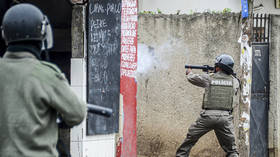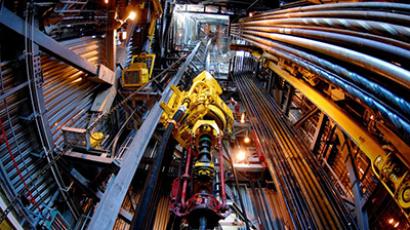Global finance leaders warn on QE2

Global finance leaders are continuing to lash out at the decision by the U.S. Federal Reserves to implement a further $600 billion in quantitative easing, to push the economy further from recession.
After 18 months of anaemic growth, almost no progress on unemployment, and still slumping house prices hammering U.S. consumers, since the Fed’s initial attempt to inflate the world’s largest economy away from deflation, quantitative easing 2 was unveiled late last week.Following up March 2009’s more than $1 Trillion with a further $600 billion when the side effects of the Fed’s first QE experiment include a sliding US dollar, which has paved the way for a currency war, and triggered an across the board commodity price spike, was never going to be universally popular.The emerging economies which have born the inflationary and currency appreciating brunt of QE1 will largely bear the same again. The Fed’s announcement pushed Brazilian Finance Minister Guido Mantega to rail against the move in pointed terms.“Everybody wants the US economy to recover, but it does no good at all to just throw dollars from a helicopter.”German Finance Minister Wolfgang Schäuble was even more scathing.“With all due respect, U.S. policy is clueless,”A more understated Chinese Vice Foreign Minister, Cui Tiankai, alluded to the widespread concern, observing, “For the Fed’s new relaxed monetary policy, many countries have expressed worries about what impact it would impose on financial stability,” before adding the point skeptics believe patently obvious.“The U.S. new monetary policy will affect not only emerging economies but also developed ones,”But the Russian response, thus far, has been surprisingly positive according to Presidential Aide Arkady Dvorkovich. If there is to be a flood of dollars seeking higher yields than the sub 1% on offer across much of the developed world, then some at least will be welcome in Russia.“Some additional capital inflows into Russia, are of course, in our interest. Currently foreign capital is very small and we are interested in attracting further capital, so this move can be seen as a plus for us.”Russia has so far been a net beneficiary of the commodity price rebounds affecting gold, and a range of metals, trimming the anticipated budget deficit and buttressing the balance sheets of major Russian exporters. Its currency, the rouble, has largely been spared the QE1 induced appreciation, holding limpet like to the 30-1 ratio against the U.S. dollar, while counterpart commodity currencies such as the South African Rand, and the Canadian and Australian dollars have powered to generation highs, and with the Central Bank of Russia easing the trading band recently in the face of global Central Banks moves to intervene on currencies. Even the traditional Achilles heel of the Russian economy – inflation – was improving until the onset of the summer drought and a flood of imports turned around the 18 months drop from 15% to 5%.Vladimir Tikhomirov Chief economist, at Otkrytie says it is inflationary fears which are driving much of the reaction to the Fed’s announcement, and which Russia most needs to be on guard over. He says, that a break out of inflation would undermine economic recovery, with artificial economic growth eroding incomes and savings.“What is important is inflationary expectations, because all the participants of the economy including banks and companies…if they see that inflation targets are not met it means that next year they will be even higher…which means the banks will incorporate it in their interest rates – credit activity will slow ." Analysts say that with inflation already higher in developing economies than in the developed world dollar deprecation is a certainty. With dollar denominated assets taking on the appearance of a bubble, despite the absence of underlying economic substance, alarm bells about the next possible bubble burst are expected to get louder.














